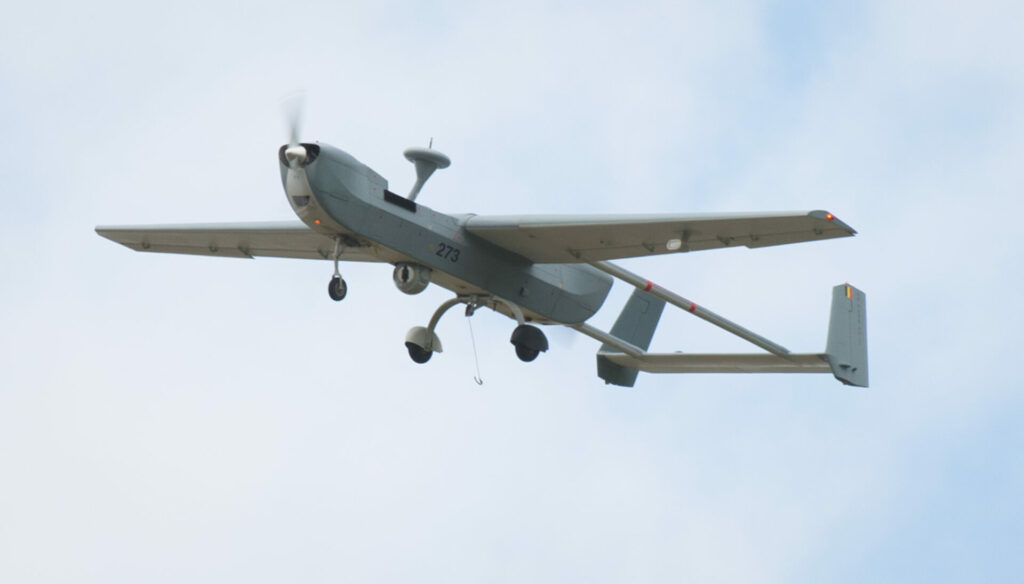The Belgian Government has rejected its own military's advice on arming its fleet of MQ-9B SkyGuardian drones, citing both ethical concerns and a lack of data regarding the efficacy of unmanned aircraft in modern warfare.
The Belgian Army's Defence Staff's request follows a government resolution proposed last year by Chairman of the Belgian Parliament's National Defence Committee Peter Buysrogge (N-VA), which similarly called for the Belgian Government to weaponise its four recently-purchased SkyGuardians.
The request was endorsed by the right-wing Flemish nationalist parties N-VA and Vlaams Belang, but it also drew passionate support from Georges Dallemagne of Les Engagés, a centrist French-speaking party.
"I have been to war zones in Syria, Iraq, Nagorno-Karabakh and recently in Ukraine,” Dallemagne told the Defence Committee. "Drones have always made a difference. Every time. You can despise [them]. You can say you don't want one, I understand the reluctance. But they exist. Do we really want them only in the hands of the people who do not intend well with us?"
Unpersuaded by this line of reasoning, the Defence Committee's decision was instead swayed by arguments made by Guillaume Defossé's (Ecolo), who cited ethical concerns about arming unmanned aircraft, and Denis Ducarme (MR), who argued that, before arming its SkyGuardians, Belgium should carefully examine the military benefits of drone warfare in Russia's conflict in Ukraine.
To arm or not to arm?
In its 12-page official opinion submitted to the Defence Committee, the Defence Staff cited two major reasons why it believes the Government's ethical concerns regarding drone warfare are misplaced.
First, the arming of the SkyGuardian fleet would not mean that the aircraft would become fully autonomous 'intelligent' weapons systems, but, rather, would be fully controlled by an actual physical human being.
"The SkyGuardians are a remote-controlled system characterized by human control. The only difference from a 'conventional' aircraft is that the operator is not on board," the Defence Staff wrote.
Second, the Defence Staff argued that, because drone aircraft typically fly much slower than conventional manned aircraft, they are able to get significantly closer to their targets before releasing their payloads which, in turn, enormously reduces the risk of civilian casualties.
Related News
- Defence Staff sees benefits in arming future MQ-9B drones
- EU sanctions against Iran’s supply of drones to Russia - too late and too little?
The Defence Staff further argued that Belgium's refusal to arm its drones could potentially render it an outlier among European countries: over the past few months, Germany, France, Italy, Spain and the Netherlands have decided to arm their respective fleets of SkyGuardians.
Many countries around the world, and especially in Europe, have significantly increased their procurement of military drones in the wake of Russia's invasion of Ukraine earlier this year.
Over the course of Russia's war, drones have been used by both sides to achieve military objectives. Recently, Russia has taken to using Iranian 'kamikaze' drones, which have inflicted severe damage on Ukraine's civilian infrastructure.

